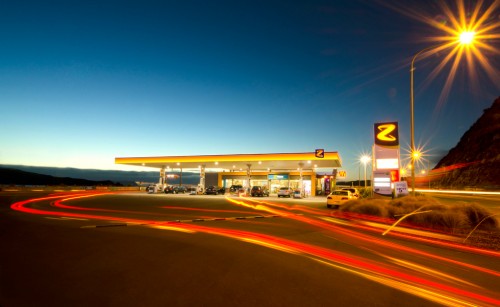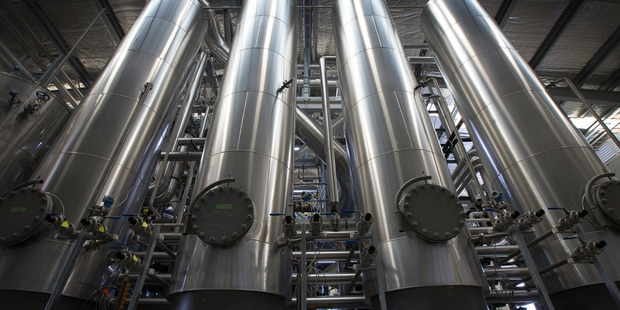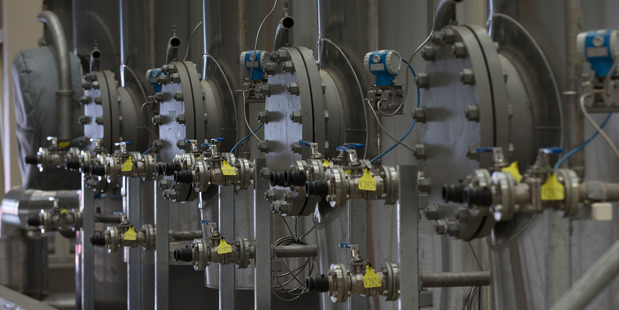RECOMMENDED VIDEOS

FirstCarbon Solutions: Management Solutions
FirstCarbon Solutions, Philippines

JinkoSolar : Eagle Series Polycrystalline - PID Free MOdule…
JinkoSolar Co.,Ltd.

Meyer Burger : innovative photovoltaic production lines
Meyer Burger Company Ltd

Clenergy PV-ezRack SolarTerrace III-A
Clenergy International

How to Install a Rainwater Collection System for Potable…
Innovative Water Solutions LLC
Related Stories
The City of London will be powered with 100% renewable energy by October 2018
The largest solar farm apiary in the US opens this week
New study suggests that plastic waste may be transformed into usable energy
Uravu’s zero-electricity Aqua Panels produce gallons of water from thin air
104% of Portugal’s electricity consumption in March came from renewable energy
25 May, 2016

Z Energy's green diesel about to flow
Renewable Energy & Energy Efficiency | NEW ZEALAND | 27 May, 2016
Published by : Eco Media Asia
Z Energy is about to open the country's first commercial scale biofuels plant in what it says is a bid to become part of the solution to the emissions equation, rather than part of the problem. The fast-growing listed company is putting its money - $26 million - where its mouth is and not expecting to make much of a return on it, at least in the short term.
"This is very much a long-term game - this is a small but significant step to our low carbon future. If we want to meet our climate change goals we've got to start somewhere," said the company's senior communications advisor Sheena Thomas. Relatively low oil prices for the past 18 months meant the economics of the South Auckland plant had got tougher. That's been exacerbated by an increase in the price of tallow - the animal fat the biofuel is made from. The business case was built over a 10 year period, over which time commodity prices - oil and tallow - will bounce around.

Z Energy biodiesel plant in Wiri, South Auckland. Photo / Brett Phibbs
"We would not avoid building the plant because of low oil prices," Thomas said.
It does however need to charge more to make the venture viable. She said it would charge about 2c a litre more for the Z Bio D than its standard diesel but from the early stages of the project there had been powerful corporate support. Fonterra, Fulton Hogan and New Zealand Post had signed up early and had been prepared to pay a premium for the biodiesel.
"We wouldn't have been bold enough to get this far without the support of our customers and we've had some iconic New Zealand companies to support us," she says.
New Zealand business were recognising that commitment to greener energy was not a "nice to have but an absolute necessity."
The plant is built on the 7573sqm site of a former truck yard in Wiri, right underneath the flight path to Auckland Airport . Of the $26 million invested, $22 million had been spent at the Wiri plant and a further $4 million at its terminals in Wiri and Mount Maunganui where the pure bio-diesel will be mixed with mineral diesel to produce a 5 per cent blend. It will produce about 20 million litres of the product a year, but does have the capacity to double that with the addition of more storage tanks.
Thomas said while the process had been around for 70 years, Z had been able to cherry pick the best technology from around the world. The company worked hard to allay any concerns about biodiesel.
Purity in diesel is crucial and Thomas said extra processes and checks at critical points of every batch were in place. The plant has an on-site lab to test the fuel, it was also independently tested and the Ministry of Business, Innovation and Employment routinely tests all fuel at service stations. A critical step in the purification process took place in the 20m tall distillation column, a sophisticated piece of equipment which removes trace contaminants from the finished product.
The column makes up half the cost of the plant. During the past week water had been run through the plant to check for leaks and it will move into a test phase next week before commercial production starts. The B5 blend will be available in the Auckland, Bay of Plenty and Waikato regions from around the middle of the year. Thomas said to Z's knowledge no other biodiesel plant had been built or was operating without state support or subsidies.
There had been government support for the biofuel industry between 2009 and 2012 when $36 million was allocated for producers able to meet the quality specifications for engine fuels but when it was phased out small producers dropped out of the market.

Z Energy biodiesel plant in Wiri, South Auckland. Photo / Brett Phibbs
Z will use about 12 per cent of the country's 150,000 tonnes-a-year supply of tallow, according to the Bioenergy Association. At present the rest is exported, principally for use in animal foods, chemicals manufacture, soap and candle making and some used to make biofuel in Singapore.
Tallow is a by-product from the meat processing industry, fat from animals which is rendered at a plant in Matamata and will be transported in heated tankers to the Z plant.
In information sent out to the transport industry, Z says biodiesel burns more cleanly than ordinary diesel, creating less of the particulate matter in exhaust emissions and it is better for engines, and improved lubricity helps reduce friction and wear on fuel system components.
The plant was envisaged five years ago and for Thomas and other staff at Z it has become something of a passion project.
"We're so excited to see this come to life."
Article by Grant Bradley at NZherald
